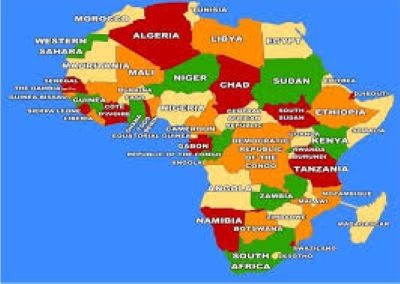The US has announced a major partnership aimed at transforming access to life-saving medical supplies across five African countries, in what officials describe as a ‘new era of diplomacy driven by innovation’.
The US Department of State confirmed the agreement on Tuesday, detailing up to $150 million in support for Zipline International Inc., the American robotics firm known for its autonomous medical delivery drones.
The plan, officials say, will expand Zipline’s operations in Côte d’Ivoire, Ghana, Kenya, Nigeria and Rwanda, ultimately serving as many as 15,000 health facilities. According to the State Department, the goal is to ensure that essential products – including blood, vaccines and critical medicines – reach communities where poor road networks often delay urgent medical care. The material in this story is based on information released by the US Department of State.
US says innovation central to global health
A State Department spokesperson said the initiative underscores Washington’s commitment to pairing American innovation with international development. ‘We are supporting American-made robotics to ensure people in remote areas get the life-saving medical products they need, when they need them,’ the spokesperson said.
The project is part of the Trump administration’s America First Global Health Strategy, which emphasises the use of advanced technologies to strengthen health systems overseas while supporting jobs at home. ‘This partnership strengthens health systems across Africa while creating jobs in the United States and contributing to global health security,’ the spokesperson added.
AI-powered logistics to speed emergency response
By combining artificial intelligence, robotics and autonomous logistics, the partnership aims to dramatically reduce emergency response times, particularly in hard-to-reach rural settings. Faster delivery of vaccines and blood products is expected to improve outcomes in maternal health emergencies, trauma cases and infectious disease outbreaks – challenges that African health systems continue to face.
The State Department noted that public-private collaboration is central to the project’s design. The agreement uses ‘milestone-based financing’ and cost-sharing models with partner governments to ensure long-term sustainability, a shift away from traditional donor-funded health projects.
Washington links investment to geopolitical goals
Officials also framed the initiative as part of a wider foreign-policy agenda to promote American technology abroad and provide alternatives to ‘debt-financed infrastructure’ offered by competing global actors. ‘American innovation remains the preferred choice for infrastructure investment in Africa,’ the spokesperson said. ‘This agreement highlights how public-private collaboration can advance global health while opening new markets for US companies.’
The initiative marks one of the largest US investments to date in autonomous health-delivery technology on the continent. Washington believes the partnership could serve as a template for future collaborations blending technology, diplomacy and economic opportunity.


